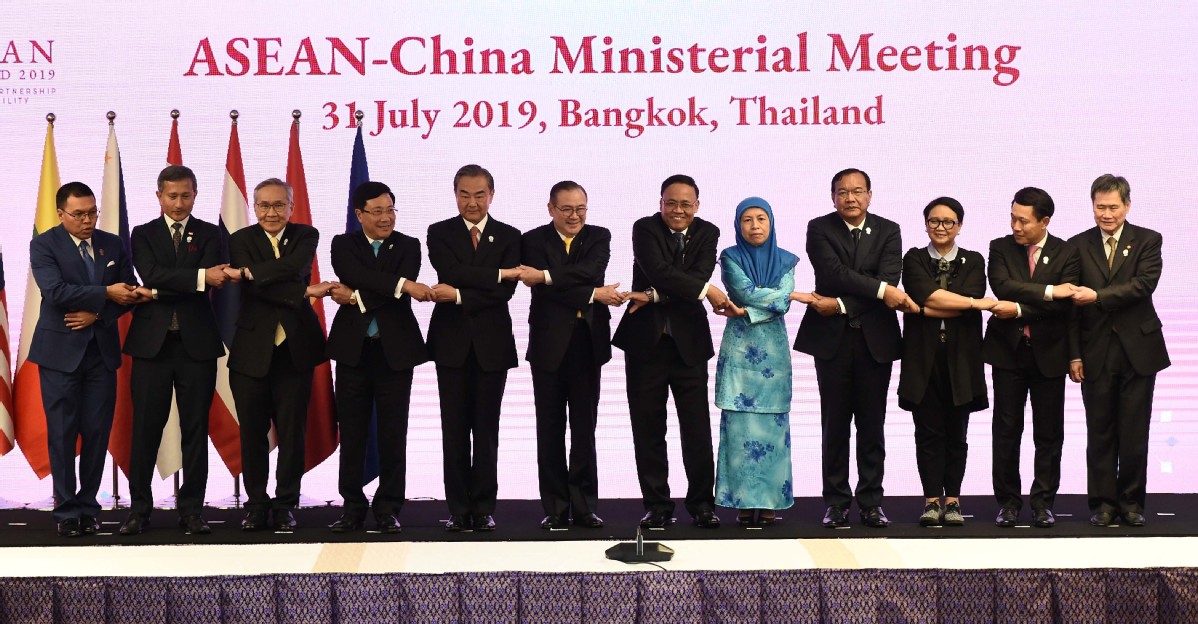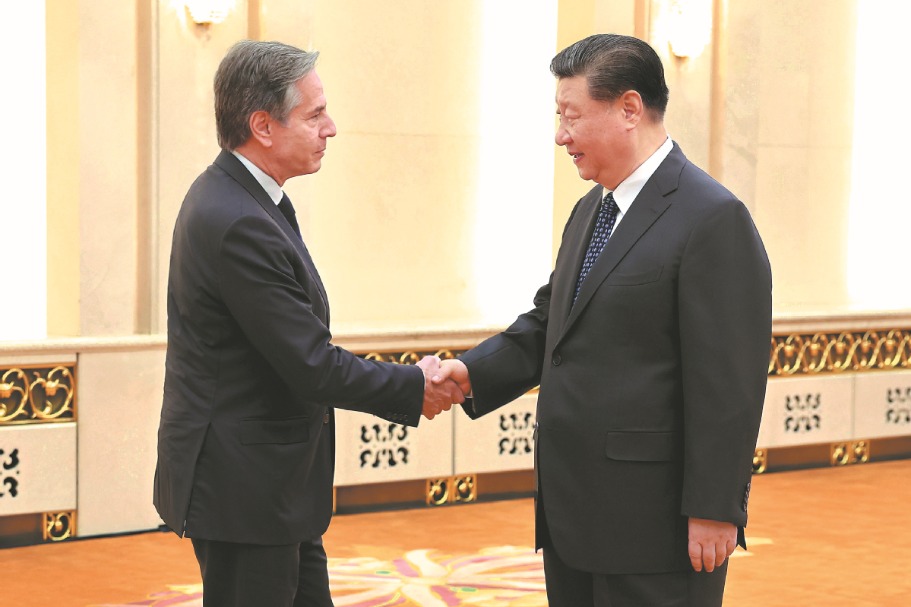US meddling in South China Sea to destabilize promising progress: China Daily editorial
chinadaily.com.cn | Updated: 2019-08-06 21:24

Anyone seriously concerned about the contested South China Sea should note this: China and the Association of Southeast Asian Nations have finished the first reading of the Code of Conduct Single Draft Negotiating Text ahead of schedule.
And talks on a second draft are due to begin in October.
Which means countries with conflicting claims in the South China Sea are finally edging toward agreeing an arrangement for shelving the disputes and preventing conflicts.
While China and ASEAN nations have engaged in very constructive COC consultations aimed at institutionalizing peace in the South China Sea, and have made remarkable progress toward that goal, what is a source of hope to stakeholders in the region appears very different to some outsiders.
US Defense Secretary Mark Esper, for one, alleges China is "destabilizing" the region.
The new US defense chief made the remarks in Australia on his first overseas trip in his current capacity, lambasting "a disturbing pattern of aggressive behavior; destabilizing behavior from China". Which echoes US State Secretary Mike Pompeo's allegation of China's "decades of bad behavior".
Side by side with Pompeo's proclaimed attempt to foster a closer regional alliance against alleged Chinese "bad behavior", Esper announced his eagerness to deploy intermediate-range conventional missiles in the Pacific region "within months".
US vigilance against China did not begin from the current administration, and it has never lacked an excuse for corresponding military deployment.
It does not matter to the US that the deployment of new strategic weapons in the region will disrupt the longstanding security equilibrium throughout the Asia-Pacific, or Indo-Pacific, as the US insists on calling it, potentially setting off a new arms race, and threatening peace and stability. Washington's current logic seems to be whatever it does is legitimate, whatever Beijing does is not.
So, in spite all of the efforts Beijing has made to de-escalate tensions in the areas surrounding the South China Sea, Washington accuses it of "destabilizing" the region. China's installation of proper defensive facilities on its own features in the South China Sea are thus decried as "weaponizing the global commons", though it has nothing to do with "the global commons".
Esper's allegations may not be worth serious scrutiny because they are legally porous, and against reality. But they represent a worrisome trend in present-day China-US relations — especially because tensions are rippling rapidly beyond the two countries' ongoing trade confrontation.
Unless they can be managed in a timely and cool-headed manner, such tensions have the potential to take the overall bilateral relationship hostage.
























